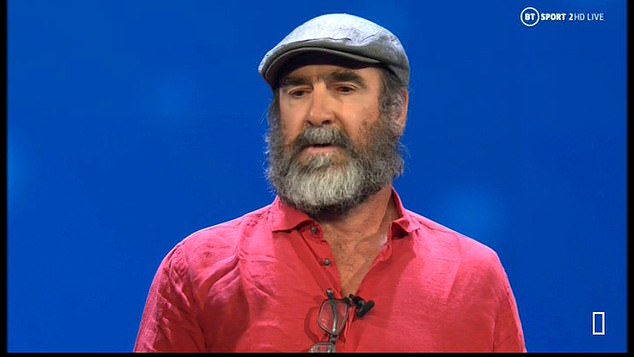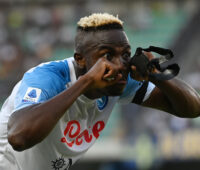
Eric Cantona, one of the greatest players ever signed by Manchester United, was invited to this year’s UEFA Awards for the purpose of accepting the coveted President’s Award in recognition of his lifetime dedication to the beautiful game. Cantona showed up to the awards ceremony sporting a thick and scraggly beard in addition to shabby casual apparel; he took the podium and proceeded to deliver a cryptic acceptance speech that has generated countless memes, commentary and analysis.
The speech began with a Shakespeare quote, specifically from King Lear, and continued with a couple of observations about biotechnology, advanced genetics research, the futulity of armed conflict, mortality, and Cantona’s love of football. Reactions from those in attendance varied from shock to puzzlement and from bewilderment to deep thought, but in the end Cantona flashed a tentative smile, thus provoking laughter from players, club managers, and even FIFA officials.
According to an article written by Jack Holmes for Esquire magazine, Cantona bucked the boring trend of sports awards ceremonies, which tend to feature bland speeches from athletes who resort to cliches and congratulations. The memes that have dominated Twitter are focused on the funny reactions of those in attendance, particularly the baffled faces of tuxedoed footballers and their glamorous wives, but the bottom line of Cantona’s speech is that his valid existential commentary holds up to what is happening in the world of professional sports.
This year’s Best Player Award did not go to Lionel Messi or Cristiano Ronaldo; although they were nominated, Virgil Van Dijk of Liverpool earned the distinction, and this ties into what Cantona mentioned about advanced genetics research that seeks to slow down the natural aging process. Messi and Ronaldo are by no means past their prime, but they both know that a time wI’ll come when even the best efforts to stay at the top of their game will prove fruitless against the passage of time.
Cantona chose to retire at the age of 30, just when he was at the height of his career. He never played in a World Cup, but he felt that his time had come; he did not want to feel his cellular system aging on the soccer pitch, and he dedicated his life to reflecting about what the beautiful game means to people around the world. His recent acceptance speech should not have surprised anyone who has followed his post-retirement life since 1997.














Leave a Reply
Be the First to Comment!
You must be logged in to post a comment.
You must be logged in to post a comment.